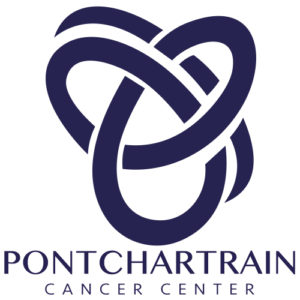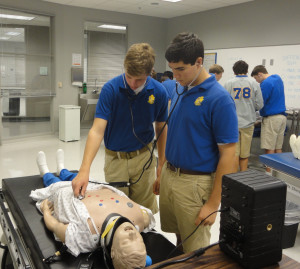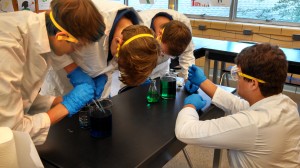Biomedical Sciences Program
The PLTW Biomedical Sciences (BMS) Program is a sequence of courses all aligned with appropriate national learning standards, which follows a proven hands-on, real-world problem-solving approach to learning. Students explore the concepts of human medicine and are introduced to topics such as physiology, genetics, microbiology and public health. Through activities, such as dissecting a sheep’s heart, students examine the processes, structures and interactions of the human body – often playing the role of biomedical professionals. They also explore the prevention, diagnosis and treatment of diseases, working collaboratively to investigate and design innovative solutions to the health challenges of the 21st century, such as fighting cancer with nanotechnology.
Throughout BMS courses, students acquire strong teamwork and communication practices, and develop organizational, critical-thinking, and problem-solving skills. Along the way students investigate a variety of careers in biomedical sciences. During the first year of implementation, schools are required to offer at least one of the foundation courses and ultimately implement all three foundation courses. The capstone course is optional.
BMS courses complement traditional science courses and can serve as the foundation for STEM-centered or specialized academies. The program is designed to prepare students to pursue a post-secondary education and careers in the biomedical sciences.
Foundation Courses
Principles of the Biomedical Sciences (PBS) Students investigate various health conditions including heart disease, diabetes, sickle-cell disease, hypercholesterolemia, and infectious diseases. They determine the factors that led to the death of a fictional person, and investigate lifestyle choices and medical treatments that might have prolonged the person’s life. The activities and projects introduce students to human physiology, medicine, and research processes. This course provides an overview of all the courses in the Biomedical Sciences program and lays the scientific foundation for subsequent courses. This course is designed for 9th or 10th grade students.
Human Body Systems (HBS)
Students examine the interactions of human body systems as they explore identity, power, movement, protection, and homeostasis. Students design experiments, investigate the structures and functions of the human body, and use data acquisition software to monitor body functions such as muscle movement, reflex and voluntary action, and respiration. Exploring science in action, students build organs and tissues on a skeletal manikin, work through interesting real world cases and often play the roles of biomedical professionals to solve medical mysteries. This course is designed for 10th, 11th or 12th grade students.
Medical Interventions (MI)
Students investigate a variety of interventions involved in the prevention, diagnosis and treatment of diseases as they follow the life of a fictitious family. The course is a “How-To” manual for maintaining overall health and homeostasis in the body. Students explore how to prevent and fight infection; screen and evaluate the code in human DNA; prevent, diagnose and treat cancer; and prevail when the organs of the body begin to fail. Through these scenarios, students are exposed to a range of interventions related to immunology, surgery, genetics, pharmacology, medical devices, and diagnostics. This course is designed for 11th or 12th grade students.
Capstone Course
Biomedical Innovation (BI)
Students design innovative solutions for the health challenges of the 21st century. They work through progressively challenging open-ended problems, addressing topics such as clinical medicine, physiology, biomedical engineering, and public health. They have the opportunity to work on an independent project with a mentor or advisor from a university, hospital, research institution, or the biomedical industry. Throughout the course, students are expected to present their work to an audience of STEM professionals. This course is designed for 12th grade students.


